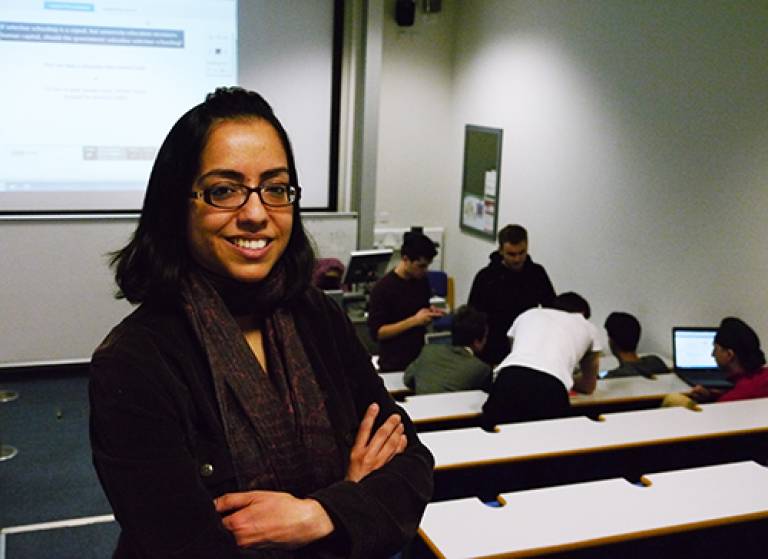Swapping traditional lectures for team-based learning
Dr Parama Chaudhury’s first-year Economics module represents a first for UCL.

9 April 2014
Based on the concept of flipping lectures, Dr Chaudhury now provides her learners with a range of sources to study before they meet, and then uses the lecture time to lead the group in team exercises.
Using face-to-face time to refine learning
“Very often the challenge people face when flipping the lecture is they aren’t sure what to do in the face-to-face time,” she explained. “But what I’ve been doing since January has a structure, and it gives students a chance to learn how to talk about economics and share ideas.”
It’s also a rare opportunity to encourage more reading and writing among economics students and to encourage them to think about the subject in a non-algebraic way.
As part of Parama’s module, all students write three essays and complete a policy debate, making use of tutorials to fine-tune their drafts.
“It’s completely different for them,” she said. “They are also asked to participate, rather than sit and listen. But, in spite of the extra work, I’ve found that the learners are very motivated and engaged.” And more confident.
The one big surprise for Parama is how much more assertive her learners have become during lecture sessions.
“In a recent lecture, I used information about the UK education system that was slightly out of date, and several students quickly corrected me. In my experience, students generally lack the confidence to interject or have switched off, but not in this case. That, I thought, was brilliant.”
The tools
From textbooks to TED talks, Parama has used a range of online and physical resources.
A step-by-step guide to Parama's team-based lecture sessions
- Set learners a list of sources to study, including textbooks, articles and videos
- Test learners on their study using a short, simple quiz
- Begin each session with a 15-minute mini-lecture focusing on what they have found difficult
- Break the group into teams to discuss open-ended questions
- Teams submit their answers for open discussion
- The lecturer offers responses to their answers
- Set written work
- Use tutorial sessions to workshop draft essays
 Close
Close

